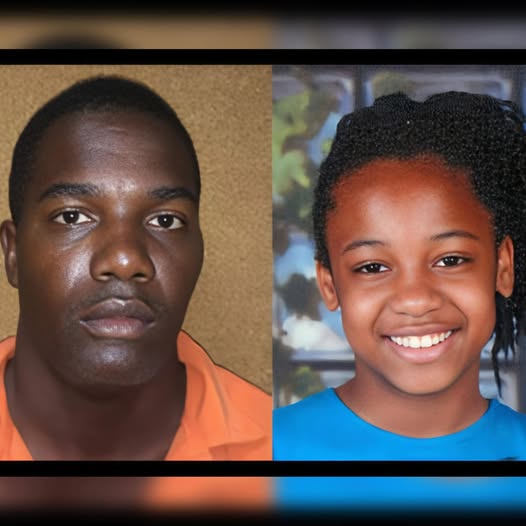The disappearance and murder of 12-year-old Talaija Dorsey in Louisiana is a harrowing tale of a life cut tragically short and a devastating betrayal of trust. It is a story that reveals the darkest aspects of human nature, a parent’s unimaginable failure to protect their child, and the painstaking work of law enforcement to bring a predator to justice. The case of Talaija Dorsey is a stark reminder of the vulnerability of children and the insidious ways in which evil can hide in plain sight, even within the confines of a home.
Talaija Dorsey, a vibrant young girl with a life full of promise ahead of her, vanished from her home, prompting a frantic search and an investigation that would ultimately uncover a horrific crime. The initial hours of her disappearance were filled with the kind of hope and denial that often accompany such events. Talaija’s mother, who has not been named in many reports, woke to find her daughter gone. The natural assumption was that she might have run away or was at a friend’s house, but as time wore on and no one could account for her whereabouts, a chilling reality began to set in.
The first and most immediate person of interest was the mother’s boyfriend, the man who had been living in the home for years and who, by all accounts, was a familiar and trusted presence in Talaija’s life. This man, whose name is not readily available in public records, was interviewed by authorities. His initial statements were vague and contradictory, full of “holes” that immediately raised red flags for seasoned detectives. He claimed to have no knowledge of Talaija’s disappearance, but his demeanor and the inconsistencies in his story painted a different picture.
Law enforcement, acting on a well-honed intuition and using modern forensic tools, quickly focused on the man’s cell phone data. In the digital age, a person’s cell phone is a silent witness, recording their movements with remarkable precision. The GPS data from his phone revealed a pattern of movement that was both strange and suspicious. The phone’s signal had pinged off a tower in a remote, isolated area—a location far from his usual routes and a place with no logical reason for him to be. This piece of technological evidence proved to be the key that unlocked the case.
Following the trail left by the digital breadcrumbs, authorities arrived at a desolate cane field on the edge of town. There, in a place meant to be hidden from the world, they made the gruesome discovery of Talaija Dorsey’s body. The sight was a devastating blow to her family and a gut-wrenching moment for the first responders. The decomposition of her body made it difficult to determine the exact cause of death, but the medical examiner’s report confirmed what many had feared: she had been sexually assaulted. The crime was no mere disappearance; it was a brutal act of violence committed by someone she should have been able to trust implicitly.
The discovery of the body shifted the investigation from a missing person’s case to a homicide investigation, and the mother’s boyfriend was now the primary suspect. As the details of the crime came to light, a horrifying and heartbreaking fact emerged from the shadows of the past. Months before her murder, Talaija had confided in someone, likely her mother, that the boyfriend had molested her. This was not a vague accusation but a direct claim of sexual abuse. However, the response she received was not one of protection or belief, but one of devastating disbelief and dismissal.
The mother, in a shocking act of denial, reportedly discredited her daughter’s claim, interpreting it as a figment of a child’s imagination. Her explanation, as quoted in some reports, was chilling: “she was dreaming because she sleeps in a bed full of teddy bears.” This statement is a powerful and disturbing example of a parent’s failure to listen to and protect their child. The reasons for this denial are complex and deeply unsettling. Was it a refusal to accept the truth about the man she loved? Was it a desperate attempt to hold on to a semblance of a normal life, a relationship she had built over six years? Regardless of the motive, the outcome was fatal. By dismissing Talaija’s cries for help, she inadvertently left her vulnerable to the very predator she had warned about.
Even after Talaija’s body was found and the boyfriend was a person of interest, the mother continued to stand by him, a testament to the powerful hold he had over her. She publicly defended him, stating, “We’ve been together over six years. He’s been here for five years living with us since my baby was born. He saw her grow up. I would like to think that he didn’t do anything.” This statement, born of a desperate hope, underscores the psychological grip a predator can have on a victim’s family, creating a web of denial and loyalty that blinds them to the truth. Her words, in retrospect, are a tragic reflection of a love that was blind to the danger lurking within her own home.
The evidence against the boyfriend was overwhelming. The cell phone data, the discovery of the body, and the prior accusations from Talaija all pointed to his guilt. Faced with an insurmountable mountain of evidence, he eventually pleaded guilty to the murder of Talaija Dorsey. This plea spared the family the trauma of a prolonged trial but did little to ease the pain of their loss. His admission of guilt sealed his fate, and he was sentenced to life in prison, a punishment that, while just, can never restore the life he so cruelly took.
The case of Talaija Dorsey is, unfortunately, not an isolated incident. It is a grim reflection of a societal problem where vulnerable individuals, particularly single mothers, become targets for predators. These predators often use the guise of a relationship to gain access to a home and, more importantly, to the children within it. They prey on a mother’s loneliness or her desire for a stable family unit, slowly and insidiously inserting themselves into the lives of a child, building a false sense of trust before striking. The news report’s observation that “this is the norm in society today” is a harsh but necessary truth. It points to a deeper issue of societal structures and the psychological vulnerabilities that allow such crimes to occur.
To combat this societal ill, it is crucial to empower and educate individuals about the signs of abuse and the importance of believing children. Children, especially young children, rarely lie about sexual abuse. When a child makes such a claim, it is a cry for help that must be taken seriously, regardless of how uncomfortable or unbelievable it may seem. The first and most critical line of defense for a child is their parent or guardian. The failure of that defense, as seen in this case, can have catastrophic consequences.
The story of Talaija Dorsey is a somber reminder of the fragility of childhood and the importance of vigilance. Her memory serves as a plea for all of us to listen to the whispers of a child, to recognize the subtle signs of danger, and to act decisively to protect the most vulnerable among us. While her life was cut short by a monstrous act, the legacy of her story can be one of prevention, a call to action for a society to do better, to be more vigilant, and to never, ever dismiss a child’s truth. The conviction and sentencing of her killer may bring a measure of closure, but the pain and the questions that surround her death will forever linger, a tragic testament to a life lost to an unimaginable betrayal.


Leave a Reply